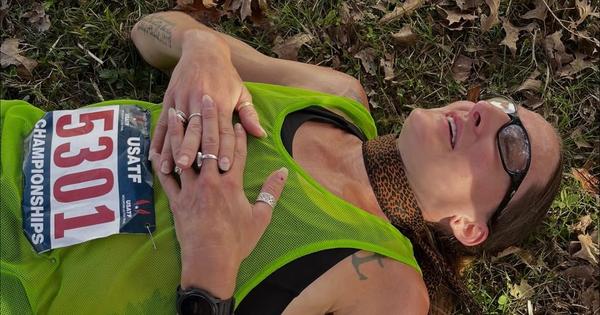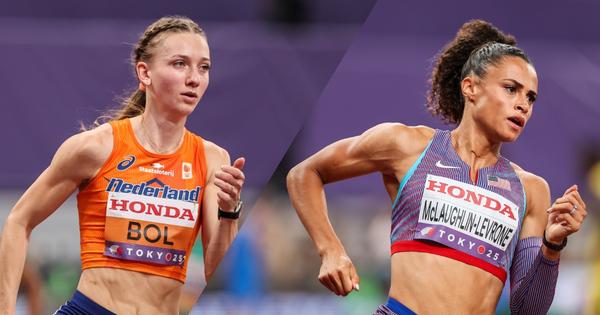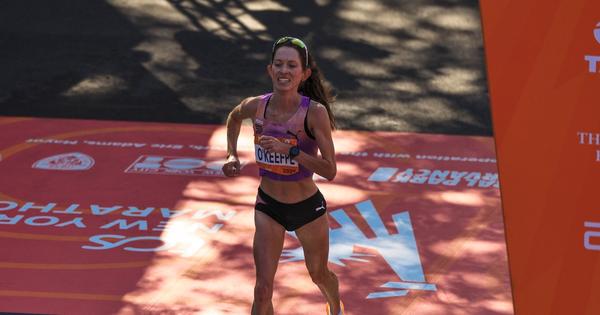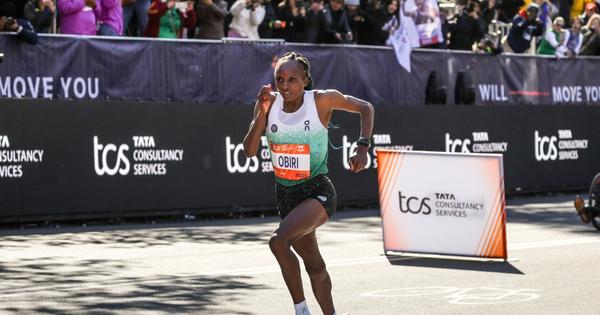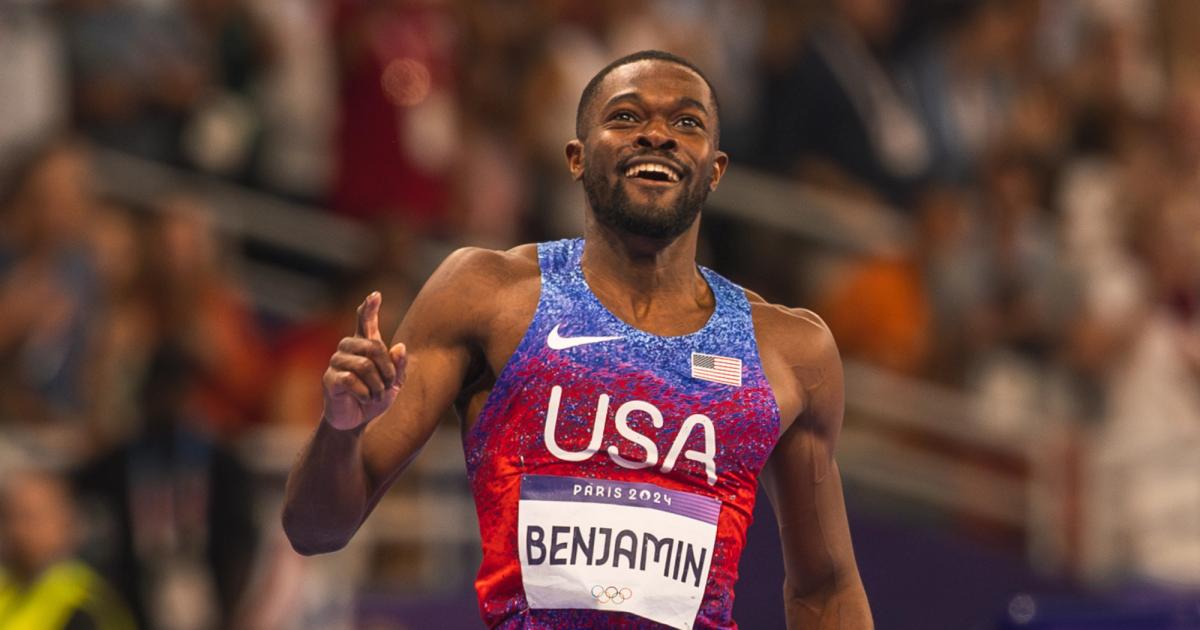By David Melly
November 12, 2025
Track and field medals were handed out months ago and the World Marathon Major circuit finally wrapped up in New York, but is championship season really over?
Not if your race distance of choice is really, really, really long. Fall is a great time to be an ultra-running fan or competitor, beginning with Ultra-Trail du Mont Blanc in late August and continuing with three World Championships (24 hours, 100k, and 50k) in October, November, and December. Last weekend, all eyes in the ultra world weren’t on Chamonix, France or Bangkok, Thailand, however: they were fixated on the bustling metropolis of Vienna, Illinois.
That’s because Vienna (pronounced “VIE-anna”; population: 1,300) was home to the 12th annual Tunnel Hill 50 and 100 mile race, as well as the USATF 50-mile championship. 800 runners took to the flat, crushed-gravel bike path for an out-and-back… and out-and-back, and out-and-back, and out-and-back… race whose finishers ranged from 2:12 marathoner Brogan Austin to 90-year-old Gene Bruckert, who won his age group as the sole participant with a 24:03:34 effort.
The race results weren’t all novelties and “where are they now” spotting by any means. Two world records and an American record went down at Tunnel Hill, a course that’s basically become the BU indoor track for ultramarathons. The first big story of the day was Anne Flower, a full-time emergency room doctor from Colorado who shattered the women’s 50 mile record by over 11 minutes. Like Austin, Flower was a 2020 Olympic Marathon Trials qualifier, but she was never a professional—quite the opposite, as she clocked her 2:42:24 PB while in residency. Earlier this year, Flower decided to run her first-ever 100-mile at the famed Leadville 100, and it seems that she’s found her specialty, as she shattered the course record on the high-altitude trail race in her first go.
Flower ran about as close to perfectly-even splits as possible throughout the race, averaging 6:23 per mile and coming through the marathon split in 2:46. Based on how cheerful she looked at the finish line, you’d think she was out for a 5k jog in the park. Austin, who was running his first ultramarathon of any distance, had an unfortunately typical debut, hitting the marathon in 2:26 (5:36 pace) and then hitting the wall, hanging on for a 5:02:54 finish (6:03 pace) the hard way. Behind him, the experienced legs of Dr. Geoff Burns, who in his day job is a national expert on supershoes, kept things between 6:00 and 6:10 pace the whole time to move from 5th into 2nd over the back half of the race. That tale of two races is a perfect distillation of where the sport of ultrarunning is right now: you can have the shiny road PBs and track-honed talent, but experience still goes a long way over long distances.
The woman whose record Flower broke, Courtney Olsen, finished second in the USATF championship, but her day didn’t end at 50 miles. The race did feature an official 100km finish, which outside the mile-focused United States is the more common ultra race distance than 50 miles, and Olsen had a big barrier in mind. She wanted the 30-year-old American record of 7:00:48 held by 1990s ultra legend Anne Trason, but it was really close at the end. Olsen, a 2:36 marathoner in her own right, sprinted into the finish at the end of 62 miles of racing to clock a 6:59:55, breaking not just the record but the seven-hour barrier—something only one other woman in history has ever achieved.
Five hours later, those poor souls taking on the 100-mile distance were wrapping up their last few miles with headlamps in the dark. Even with aching legs and sinking temperatures, 45-year-old Caitriona Jennings didn’t come all the way from Ireland to go home empty-handed. With impressively even halves of 6:12:06 and 6:24:58, Jennings knocked five minutes off Camille Herron’s prior world (and course) record set back in 2017. Jennings also finished fourth overall in the race that ultimately had 173 total finishers.
The men’s race, believe it or not, came down to the 100-mile equivalent of a kicker’s battle, with 21 seconds separating Phil Young and Reese Slobodianuk at 97 miles. Young had led the first half of the race but slipped to third place before clawing his way back in the last 15 or so miles. Young finished in 12:03:27 (7:14 pace) with all the top male finishers slowing down fairly significantly over the second half, but found the extra gear to clip off a few 6-minute miles at the finish to overtake Slobodianuk for the win.
Much like Chicago or New York, Tunnel Hill’s pleasant weather and strong fields provided a perfect showcase of the best of American distance running talent. But that’s pretty much where the similarities end. In many ways, Tunnel Hill is the anti-NYC: as unpretentious and free of fanfare as it gets, hundreds of miles from the nearest major city with the “crowd” limited to friends, family, and crew. There are no brand activations; there are no Bachelor contestants. Competitors are more likely to be fueling with gummy worms and hot dogs than Maurten gels. At one point, a wandering dog from a nearby farm came very close to throwing the race into disarray by blocking the road into an aid station and refusing to move for cars.
And yet, the performances themselves were elite, by any measure. If you’re a mid-pack OTQer looking at the results and thinking to yourself, “How elite can they be? I could do that,” there’s one solution: Be like Brogan Austin and go out and do it. It won’t seem quite so easy at mile 40. If you’re simply a running fan who finds yourself in southern Illinois next November, Tunnel Hill is a can’t-miss event. Just remember to bring a beer and a chair, because it takes a while.

David Melly
David began contributing to CITIUS in 2018, and quickly cemented himself as an integral part of the team thanks to his quick wit, hot takes, undying love for the sport and willingness to get yelled at online.
